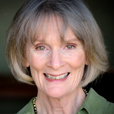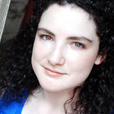I asked Four Fierce Female Improvisors across the nation to speak on their experience participating in an all-female improv group. I was curious if there were some commonalities regarding their motivation to forming an all-female group, and style of play. Got some thought provoking responses. Read on… Thanks so much Radhika, Mia, Julie and Megan! Keep femprovising!
Jill Eickmann- Femprovisor
Q: Roll Call! State your name, your training, experience with improv, the name of your all female improv group, and how long you have been performing with the group.

Radhika Rao: I have 1-2 years of regular experience with performing improv and 10-12 years of in-an-out improv classes. I perform with True Medusa, an all female improv ensemble under the umbrella of Leela in San Francisco, directed by Artistic Director, Jill Eickmann.

Mia Blankensop: I’ve been performing improv for over eleven years and studied under instructors from Gotham City Improv, IO, Annoyance Theatre, and UCB. I worked with Oakland’s Pan Theater for over four years where I was bit by the coaching bug. I have been guest coaching numerous Bay Area improv troupes for the last three years. I’ve recently helped to develop and run the unique workshop “Improv for Gamers” at gaming conventions with fellow Chick Flick member Karen Twelves. I am an ensemble member of The Un-Scripted Theater Company and a founding member and performer of the all-women troupe Chick Flick in the SF/Bay Area.

Julie Payne: Since 1969, beginning with The Committee (hired by Del Close) and other groups in L.A.. With women: the Wims, in the late eighties and nineties. (About 20 years.) Currently teach and experiment with new ways to help women use improvisation onstage/offstage to build community, using what I learned from the Wims, or have developed myself.
Megan Gray: I have studied improv at the Magnet and the UCB Theatre with Armando Diaz, Kevin Dorff, Christina Gausas, Dave Pasquesi, TJ Jagodowski, Jean Villepique, Joe Bill, Dave Razowsky and many others. I am the Artistic Director of the Magnet Theater in NYC, where I teach Level 1 improv and an all female improv class called Lady Party. I have performed with Second City aboard the NCL Gem and perform weekly with my Magnet house team Junior Varsity and my all female improv group Human Pyramid (with Emily Shapiro, Caitlin Steitzer, Alexis Lambright, Ruby Marez and Rachel Werbel).
Q: What is your style of improv as a group? What kind of structures/ games/ characters do you perform?
Radhika Rao: We do Long-Form Improvised Theatre. The form we last worked on was a one location long-form. We invite the audience to provide us with the scene setting (e.g., cafe, library, gas station, etc) and then we paint the details of the scene for the audience. One by one, each performer comes up and identifies a different part of the stage. The idea is to paint a clear picture for the audience so that they can clearly imagine the location. And then we begin the scene action itself. Currently we start with a series of 2 person scenes where 2 actors will start a scene and establish their character (physicality, voice, wants, quirks, etc) as well as establish their relationship (their shared history, any conflicts/tensions, shared goals, etc). After the relationship has been established, each actor organically cycles out of a scene and another enters for a new 2 person scenes. As a series of 2 person scenes are staged, the audience gets to see different characters in the same space and how their relationship plays out and a definitive plot starts to develop with central themes/protagonists, etc. The improv set culminates with all of the improvisers making their way to the stage for a 6-person scene. The action builds up to a climax and then is resolved through choices that the actors make.
Mia Blankensop: Our goal was always to be deeply collaborative. Though some of us members have quite a bit of directing and coaching experience, this group does not have a single instructor. We give feedback to each other and decide what we need to work on as a troupe. We like to discover and refine new improv formats. We just finished a run of shows of our “Eternal Sunshine” format where the actors jump around in time and find out what happened to our characters in the past, present, and future. It was beyond fun. The Chick Flick style is joyful, imaginative, but grounded. The relationships and collaboration should always come through when we do a show. We want to play when we rehearse while also acting our hearts out.
Julie Payne: No games. Very few “scenes” with characters and dialogues, though when we did these, the characters tended to be archetypes (or objects, men or women). Lots of jamming: spinning off from the check-ins, illustrating them, weaving themes together, making music (jazz jams, etc.) about them. We also used songs (often ethnic or spiritual with no particular religion implied), movement, installations—because we had a small supply of props that could be used as many things—no costumes or actual props, but painted sheets, wheels, sticks, etc., used as costumes and props. This helped create archetypes.
Megan Gray: We play a loose, long form montage. We follow what is fun to us in the moment, rather than what the structure dictates. Our style is silly and fun, mixing fantasy and the absurd with grounded emotional reality.
Q: Why did you decide to form or join an all-female improv group?
Radhika Rao: Well, I was cast into the all-female improv group when I auditioned for Leela but I did indicate my strong desire to work with a female artistic director and that I was attracted to the authentic, female, relational, and spiritual approach that Jill and Leela have.
Mia Blankensop: After I was harassed by a dude troupe member, I received zero support from the male theater director who told me to “get over it” and get on stage with my harasser. I left that theater and never looked back. I often joked that I wanted an all-woman troupe called Chick Flick. One afternoon, I found out that my pal (and excellent fellow improvisor) Mary Mattingly had a similar theater vision. We drank coffee for hours and discussed a concept where improv was exuberant and smart. Mary even brought some sketches of her future dream theater. Ladies were called and Chick Flick was formed in Karen Twelves’s living room. It’s been one of the most consistent and engaging improv projects of my career. And we just celebrated our 2nd anniversary!
Julie Payne: I was asked to fill in for a woman who had a gig in a play. I’d never seen them before, but it seemed interesting. By then they’d already been performing for about 3 years, I think.
Megan Gray: I host an all-female mix-em-up show once a month at the Magnet Theater called We Might Just Kiss. It was always so energizing that I asked my favorite players from that show to start a group.
Q: What are the differences for you playing with an all-female group as opposed to a mixed gender group?
Radhika Rao: I feel safer in this group. Safe to be vulnerable, safe to express my insecurities without the fear of being judged, safe to take risks, etc. I also love the opportunity to play a male character. Mixed gender groups in my experience are often about one-upmanship and competition and I often feel pitted against the other females. But in an all female ensemble, there is collaboration and support and we all have each other’s backs. The humor comes from the situation and the relationships rather than the quick one-liners or one-upmanship.
Mia Blankensop: I don’t want to get into gross generalities, but I will say that elegant improv can occur a bit more when there are women present in a troupe. I don’t mean a pretty or feminine or weak kind of comedy, because this is some heady and strong comedic stuff. It’s that the resultant improv tends to veer more towards being incredibly intelligent and hilarious while also leaving room for subtlety. I like having that space. It can be (but not always is) the opposite of the sometimes regrettable “broprov” theater. Broprov is where the poor women performers are encouraged to go out boobs first and much of the humor revolves around sexy wives, drinking, and miming a bong hit on stage. That said, there’s a lot of noisy, loud, crass, insane, sexual characters popping into scenes in Chick Flick. On a basic human level, it’s a relief to know that your fellow performers aren’t going to take saucy scenework as their cue to creepily hit on you later. Thanks for that, ladies.
Julie Payne: The Wims grew out of feminist politics as well as theatrical histories. So the material itself would never have evolved from a mixed group—our stuff was probably too ritualistic and woman-centered; it dared to be not only funny, but poignant, angry, beautiful, and extremely vulnerable as well. We took lots and lots of time, and our audience came to appreciate that, understanding that what we were showing was a process of communicating and connecting, not simply entertaining.
Megan Gray: There is something freeing about playing on an all-female group. It’s hard to explain, there’s this feeling of non-judgement and energy which I don’t find in a mixed gender group. Don’t get me wrong, I love playing in either situations but there is something special about getting on stage with all ladies. It’s a different perspective.
Q: What are the similarities?
Radhika Rao: Laughter, play, and the emphasis of basic improv rules: yes-and, listening, reacting to your partner, being present, trusting your scene partner, etc. The rules are the same….but how you get to them is what’s different.
Mia Blankensop: We have a regular guest performer who is a lovely guy named John Wise. So there’s plenty that is similar. I’d say 99.8%. You’re still trying to risk it all to get an emotional response from your fellow players and audience members, right? That’s not lady improv…that’s just good improv.
Julie Payne: Still funny and smart. Still on a stage.
Megan Gray: The similarities are those you’d find in any good improviser (male or female): great support, listening and treating any idea like the best idea.
Q: Any advise for folks wanting to form an all-women’s improv group in their town?
Radhika Rao: Just do it!! And let the process come from an authentic place, not from what everybody else in town is doing. The humor will come from the genuine relationships formed on stage and not from trying to be funny or better than another improv group. Think of all the things you’ve always wanted in an improv group as a woman and try to implement those. Also, get in touch with other women-led theatre groups/initiatives with more experience. Ask them to share their pearls of wisdom with you and form a circle of love and support!!
Mia Blankensop: Just do it. Rehearse in a living room. That’s what we did. If you work hard and are dedicated, shows will follow, but don’t be afraid to just throw a party and perform at said party with your trapped audience of friends and family. It’s good, supportive practice.
Get a coach if you can afford one to keep you on track. Have separate business meetings to make sure you’re all on the same page. And do dues! 5-10 bucks a month is fine. You’ll then grow a little nest egg for photo shoots and coach payments and theater rentals…this takes the pressure off budget negotiations when things come up later.
Julie Payne: See if you can figure out what you want to say, and dare to say it. Build a particular audience by supplying a particular artistic/comedic/political/whatever need. Watch each other.
Megan Gray: Stay true to your voice and do what is fun for you.
Q: When and where is your next show and how can we buy tickets?
Radhika Rao: True Medusa has a big show produced by Leela at The Ninth Street Independent Film Center (SF) on Saturday, April 20th- 8 pm. This show’s format is different from our last structure and inspired by Julie Payne’s teachings and the exercises she learned from The Wims. We also do lots of collaborative shows with other groups around the Bay Area. Like us on Facebook and find out when/where our next show is.
Mia Blankensop: We just finished a successful Harold run, produced by Endgames Improv in SF’s Mission District. Like us on Facebook and find out when/where our next show is.
Julie Payne: Extinct. No tickets. Two of us died, and the others are deeply involved in other aspects of their lives, so The Wims lives on only in memory and perhaps in a documentary, if that can be put together. However, please read and distribute Stephanie Waxman’s (Wims Member) documentation on many of our exercises and history of the Wims in this Pdf.
Megan Gray: I play all the time at the Magnet Theater.
My house team Junior Varsity plays every Thursday at 8pm and my lady show We Might Just Kiss occurs the last Monday of every month at 10pm.
